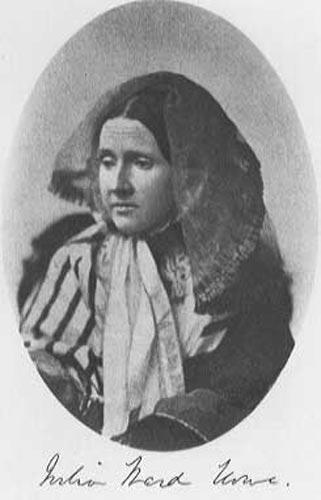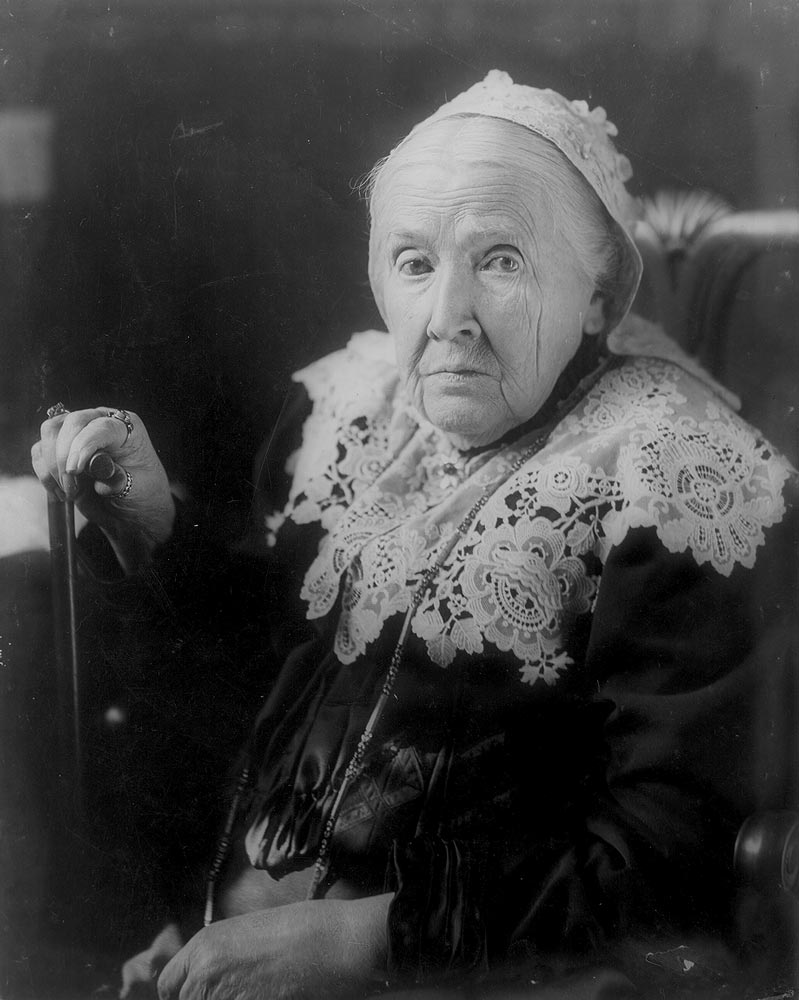Julia Ward Howe was a famous American social activist, abolitionist and poet, born on May 27, 1819 in New York City. She was the fourth-born of Samuel Ward and Julia Cutler. Her mother was an occasional poet while her father was a prominent banker. Julia is remembered for her work especially as the novelist of The Battle Hymn of the Republic first published in February 1862.
Julia’s mother passed away when she was 5 years old, and therefore was raised by her religious and protective father. She would then face more misfortunes. Her father passed away in 1839, which was followed by the demise of a sister-in-law and a brother.
Marriage Life
Julia wedded Samuel Gridley Howe, the founder of the Perkins School for the Blind, Boston, Massachusetts, in 1843. The couple faced early marriage problems, since Mr. Howe was not interested in Julia’s writing career. Sometimes, he would discourage her from chasing her literary dreams. Despite this, the couple got their first child in Rome in 1844.
The Howes would then have 5 children in a span of 12 years. Unfortunately, their sixth child died in the early days. After that, the family moved to Boston where Julia interacted with friends and the local people. The couple’s marriage life deteriorated over the years, and they even considered divorce. However, Julia gave up the idea when Samuel demanded the custody of 2 of their children. The tension between the two was dissolved later on, and Samuel started to appreciate Julia’s work.
Literary Work
 Mrs. Howe published 2 anthologies of poems in 1848 to her husband’s discontentment. She worked with her husband in 1853 for a short while, after he edited an anti-slavery journal titled The Commonwealth. In this journal, Julia contributed literary and social criticism. It is through her collection of poems titled Passion Flowers that her domestic unhappiness was highlighted. This was followed by another collection of poems titled: “Words-for-the-Hour”, in 1857. Mrs. Howe created a play, The World’s Own, which was performed in Boston and New York. While on a trip to Washington, the Howes went to watch a review by the Union Army, but the review was cut short by an attack from the Confederates. On their way back, the two, alongside other people, started singing patriotic songs.
Mrs. Howe published 2 anthologies of poems in 1848 to her husband’s discontentment. She worked with her husband in 1853 for a short while, after he edited an anti-slavery journal titled The Commonwealth. In this journal, Julia contributed literary and social criticism. It is through her collection of poems titled Passion Flowers that her domestic unhappiness was highlighted. This was followed by another collection of poems titled: “Words-for-the-Hour”, in 1857. Mrs. Howe created a play, The World’s Own, which was performed in Boston and New York. While on a trip to Washington, the Howes went to watch a review by the Union Army, but the review was cut short by an attack from the Confederates. On their way back, the two, alongside other people, started singing patriotic songs.
On that night, in her hotel room, Julia Ward Howe wrote the lyrics to the legendary Civil War song, The Battle Hymn of the Republic. This song was published in 1862 by The Atlantic, and Julia received a payment of $5 for the work. This song became very popular and an inspiration to Union army fighting against slavery. The song is the Union national anthem for freedom.
Social Activism
When the Civil War broke out, Julia and her husband were working with the Sanitary Commission. Ms. Howe established the New England Woman’s Club in 1868 alongside Caroline Severance. After the death of her husband in 1876, Julia started to focus more in reforms. She served as the head of an association called New England Woman Suffrage from 1868 to 1877 and then from 1891 to 1893. In the Franco-Prussian war, she started a one-woman peace campaign.
Moreover, she translated her Mother’s Day Proclamation, written in 1870, into several languages and distributed it far and wide. Ms. Howe championed the cause of the formal celebration of Mother’s Day for many years. In addition to that, she initiated Mothers’ Peace day which was observed on every second Sunday in June. This idea was later replaced by the current Mothers’ Day Holiday, which is celebrated in May. In 1908, Julia Ward became the foremost woman to get voted to the American Academy of Arts and Letters. She died on October 17, 1910.
